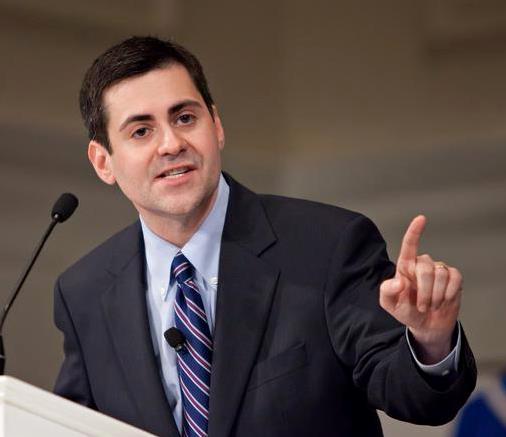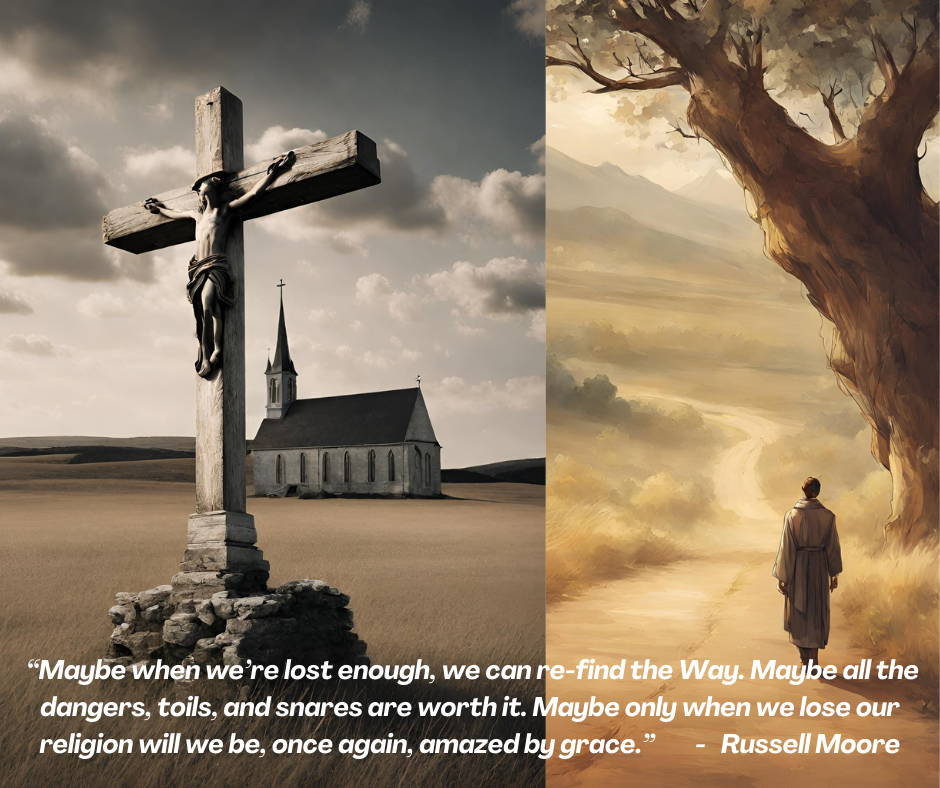Thursday Theology: A Review of Russell Moore’s Losing our Religion
Co-missioners,
Tuesday was Reformation Day on the Lutheran church calendar. Today we send you the first of three posts that will either echo its themes or address them directly. They’ll also point you to a pair of new and useful additions to your reading lists.
Speaking of lists, here’s an item for the one labeled “To Do.” Our registration portal for next January’s seminar is now open. It awaits your attention. We hope you’ll use it. We’d love to see you at the event. Among its highlights will be a chance to meet the participants in a new Crossings project for mentoring preachers. Its trial run is unfolding this fall. We hear that good things are bubbling so far.
Peace and Joy,
The Crossings Community
__________________________________________________________________
Russell Moore’s Personal Time for Confessing
A Review of Losing Our Religion: An Altar Call for Evangelical America
(New York: Sentinel, July 2023)
by Michael Hoy
If Robert W. Bertram were alive today, he might well have identified Russell Moore as yet one more ecumenical example of a witness in “a time for confessing.” At least that is my assessment, as one who knew Bertram well and edited his book on this very subject.

Russell D. Moore Preaching
From Wikimedia Commons
Russell Moore has impressive credentials. He is an evangelical theologian and minister who once served as president of the Southern Baptist Convention’s Ethics and Religious Liberty Commission. He is even better known for his work as the current editor-in-chief of Christianity Today. These are lofty achievements, and yet Moore does not flaunt them. Instead, he describes himself as “an accidental exile but an evangelical one after all” (11).
Being “an accidental exile” means that he did not initially intend to be exiled. But this is the very thing that happened to him. He was exiled from the Southern Baptist church by its leadership because he did not engage in their whole-hearted and full-fledged endorsement of Donald Trump, nor could he continue to ignore the cover-ups of sexual abuse taking place, not only in the life of Trump, but within the church itself, among its clergy and leadership. This was the “heresy” that would lead to his expulsion, and for which he would be subjected to psychological warfare by the church’s leadership. He could no longer “play the game,” as some of his own friends within the church suggested he do, though he penitently admits that for a while he did, lifting up only the good things the church was doing while ignoring the church’s sins.
That the issue here is about the gospel comes from his further explication of what it means to be an “evangelical.” It does not mean being a member of some denomination – a “tribe,” as he calls it. Instead, he settles on this definition: “An evangelical is one who believes in the God who justifies the ungodly.” While citing a biblical scholar for that gospel-centered definition, he is fully aware that one can find it in the New Testament, in Paul’s letter to the Romans (cf. 5:6: “For while we were still weak, at the right time Christ died for the ungodly.”) Yet it is this gospel, Moore argues, that “at least in North America, we are in danger of losing.” (20)
This becomes clear when Moore explains the title of his book, Losing Our Religion. Among those who share his Southern Baptist roots, “losing one’s religion” means getting so angry that it appears they are losing their faith because they are not behaving as a Christian supposedly should. Make no mistake, Moore is angry. But in his deeper and more personal meaning of being “an accidental exile,” losing his religion meant this: “I was not losing my faith, but I was losing my religion. The altar call they were issuing had me walking the opposite way, right out the back doors and into a world I’d never known before. On the other side of that reverse altar call, I started to question everything. Was that all it was? Had it all been a lie?” (10)
He sees how church as “religion” had only generated a “market driven ethos” with no real roots in the gospel, but in “the southern culture of politics, with Jesus affixed as a hood ornament.” (33) Instead of the costly grace of Christ’s crucifixion, the church offered only the “cheap grace” that shielded “predatory church leaders from accountability for their sins and crimes” – i.e., without repentance and consequences. (13) “Maybe ‘losing our religion’ is just another way of saying what Jesus commanded a first century church in crisis – a rekindling of our first love…. [Revelation 2:4]. Only when something is lost can it be found. Only when something dies can it be born again.” (25)
Moore then explores over five chapters what losing the church’s religion means for a faithful witness in our time. These chapters might well be critical explications of his book’s subtitle, An Altar Call for Evangelical America. But we would be mistaken to think that he is appealing only to his own tradition and tribe. These apply to us all, in all our traditions and tribes. (1) Losing our credibility when politics and religion become so mixed that the church’s message of the gospel cannot even be heard. (2) Losing our authority when we sacrifice the persuading truth of Christ and the gospel for an alien truth of force and authoritarianism. (3) Losing our identity when we grasp the “tribal” identity of a church denomination and/or “blood and soil” over the one source of identity we have in the “blood” of Christ crucified; and where the ugliness arising from fear of humiliation is chosen over faithful witness and acceptance that is humble (and even humiliating). (4) Losing our integrity when we seek to come out on top, excusing ourselves while choosing the lesser of two evils, rather than embracing the repentance and forgiveness in Christ that we need. (5) Losing our stability when we long nostalgically for the past (on the right) or seek a false progressive utopia (on the left), rather than being the faithful remnant, letting go of all of our false hopes, and joining with faithful voices of the promise even as we pray in the midst our exile.
At the end of each of these chapters, Moore attaches several bullet points in examining “what to do” to choose a more faithful path. They could possibly be mistaken as moralisms. They are not. Instead, they help explicate the richer meaning of faithfulness in the gospel rooted in the Christ who justifies the ungodly. One powerful example is where he talks about making peace with homelessness. He encourages us to grasp in the midst of our exile pilgrimage, where we find new friendships along the way, that our identities are in Christ’s cross and where that leads. “Once you own your exile the threat of exile is meaningless.” (152) I cannot help but consider that, for Moore, this is a parcel of his own theological and autobiographical confession of faith. Indeed, as one who also certainly knows the meaning of exile (from Seminex to the present day), I consider him a brother-confessor, accepting the homelessness of exile, living by faith, hoping for the future promise we all have in Christ. Who would have thought that such ecumenically faithful-friendly bonds could exist for an exiled Lutheran and an exiled Southern Baptist?!
Moore never suggests that he believes the church is perishing. What he does do is hold firm to the promise in which the church finds its only true source of unity – the gospel. “American Christianity is in crisis. The church is a scandal in all the worst ways. We bear responsibility for that. Some of us contributed to it. We cannot will it away by shrugging our shoulders and saying, ‘That’s the way people are.’” Then he tunes in to the gospel he still hears ringing in his ears from the spirituals of his youth. “Maybe when we’re lost enough, we can re-find the Way. Maybe all the dangers, toils, and snares are worth it. Maybe only when we lose our religion will we be, once again, amazed by grace.” (254)
Thursday Theology: that the benefits of Christ be put to use
A publication of the Crossings Community
